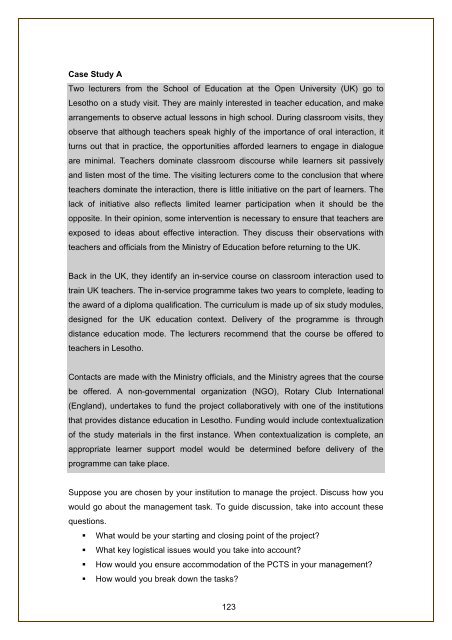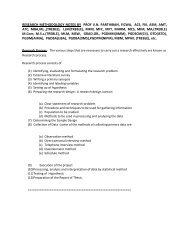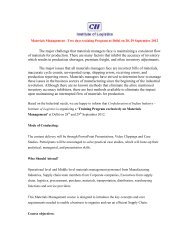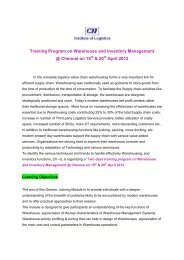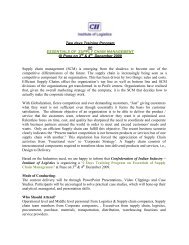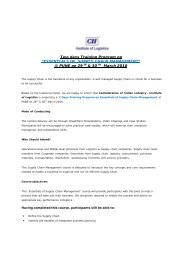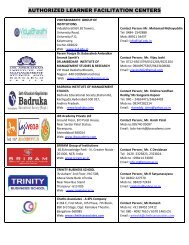successful project management - Commonwealth of Learning
successful project management - Commonwealth of Learning
successful project management - Commonwealth of Learning
You also want an ePaper? Increase the reach of your titles
YUMPU automatically turns print PDFs into web optimized ePapers that Google loves.
Case Study A<br />
Two lecturers from the School <strong>of</strong> Education at the Open University (UK) go to<br />
Lesotho on a study visit. They are mainly interested in teacher education, and make<br />
arrangements to observe actual lessons in high school. During classroom visits, they<br />
observe that although teachers speak highly <strong>of</strong> the importance <strong>of</strong> oral interaction, it<br />
turns out that in practice, the opportunities afforded learners to engage in dialogue<br />
are minimal. Teachers dominate classroom discourse while learners sit passively<br />
and listen most <strong>of</strong> the time. The visiting lecturers come to the conclusion that where<br />
teachers dominate the interaction, there is little initiative on the part <strong>of</strong> learners. The<br />
lack <strong>of</strong> initiative also reflects limited learner participation when it should be the<br />
opposite. In their opinion, some intervention is necessary to ensure that teachers are<br />
exposed to ideas about effective interaction. They discuss their observations with<br />
teachers and <strong>of</strong>ficials from the Ministry <strong>of</strong> Education before returning to the UK.<br />
Back in the UK, they identify an in-service course on classroom interaction used to<br />
train UK teachers. The in-service programme takes two years to complete, leading to<br />
the award <strong>of</strong> a diploma qualification. The curriculum is made up <strong>of</strong> six study modules,<br />
designed for the UK education context. Delivery <strong>of</strong> the programme is through<br />
distance education mode. The lecturers recommend that the course be <strong>of</strong>fered to<br />
teachers in Lesotho.<br />
Contacts are made with the Ministry <strong>of</strong>ficials, and the Ministry agrees that the course<br />
be <strong>of</strong>fered. A non-governmental organization (NGO), Rotary Club International<br />
(England), undertakes to fund the <strong>project</strong> collaboratively with one <strong>of</strong> the institutions<br />
that provides distance education in Lesotho. Funding would include contextualization<br />
<strong>of</strong> the study materials in the first instance. When contextualization is complete, an<br />
appropriate learner support model would be determined before delivery <strong>of</strong> the<br />
programme can take place.<br />
Suppose you are chosen by your institution to manage the <strong>project</strong>. Discuss how you<br />
would go about the <strong>management</strong> task. To guide discussion, take into account these<br />
questions.<br />
• What would be your starting and closing point <strong>of</strong> the <strong>project</strong>?<br />
• What key logistical issues would you take into account?<br />
• How would you ensure accommodation <strong>of</strong> the PCTS in your <strong>management</strong>?<br />
• How would you break down the tasks?<br />
123


